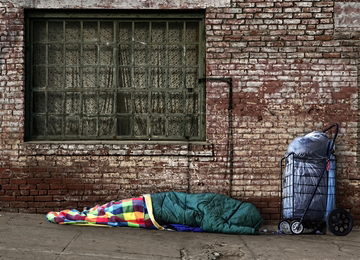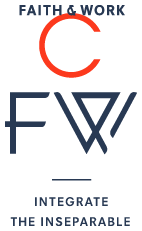
Blog
Uphold the Cause of the Poor and
the Oppressed
By: C.J. Masimore
This morning I went to one of my least favorite places: Family Court. I was there to argue a motion on behalf of my client, who—because of a lifetime of little opportunity, poor choices, and a broken justice system—was wrongfully saddled with a money judgment of more than $40,000. Not only was the judgment faulty, my client also has no high school degree and works part-time as a janitor. He diligently looks for full-time, and better-paying, work (and is studying for his GED). But until he finds that fabled job, he barely makes more than the poverty line. A $40,000 debt might as well be a $40,000,000 debt. To boot, he has a criminal record and is a minority, which basically means his chances of getting a better paying job are slim to none.
Going into court today, I was apprehensive. The law is squarely on my client’s side, but the judge is not. The past two court appearances involved the judge making a lot of wrong assumptions about my client and yelling. A lot. I don’t like getting yelled at, but in this capacity, I don’t mind. Not only was I prepared and confident in the law as it applies to my client, this is also my job: to advocate for my client. If anyone is going to get yelled at, then, I would rather it be me than my client. I’m here to bear the brunt of the judge’s wrath for him. And to present my client’s case and the law to the judge—no matter how much he berates me for it.
As confident as I was in the law this morning, I was less confident in the system—the judge, the court, and the administration—and in my ability to stand up for justice in the long run. I direct a tiny Christian legal services organization, Open Hands. We provide free legal services to New York’s most underserved populations—from homeless men in recovery on the Bowery to undocumented immigrants in Harlem. We use volunteer attorneys to provide free legal advice and counsel to New York City’s neediest residents. We pray for and with our clients. We pray not for the world to see, but we pray individually and corporately, acknowledging the brokenness in the world and admitting that, without Christ, we can achieve no restoration.
When I met my client through an elder in his church, I couldn’t not take his case. The injustice of his situation and his repeated attempts and inability to find relief in the system without an advocate was too much to ignore. But now, if we lose in court today, we have to appeal. And an appeal demands time and money we don’t have. Going into court, I know that I need to win this motion today.
Brokenness of the System
In court, we wait and wait and wait. As the hours pass, I’m hit smack in the face with the broken justice system and the broken family sphere: court officers yelling at litigants, children crying, and stressed-out parents screaming at their children and at each other. A courthouse is no place for a child. And yet, I also see small children—younger than my toddler son—patiently waiting in the gallery, waiting for their parents’ case to be called. Already these kids seem accustomed to the waiting and administrating of their lives by forces beyond their control. Surely Family Court is not the only place these young ones wait—poverty is so pervasive that it extends to housing (the shelter system), food (the welfare offices), and the list goes on.
It’s around this time that the brokenness of the world really starts to weigh on me. I don’t know that I could practice this type of law if I were not cognizant of a just and righteous God who one day will bring justice and reconciliation to the earth in all spheres—the justice sphere, the family sphere, and the economic sphere, to start. Because on this earth, in this court, in this job market, in this client’s family—injustice and brokenness in all spheres are converging and reigning supreme, and we may or may not see justice in court today. Or ever on this earth.
Though it would be unjust for us to lose, I frankly won’t be surprised if we do. This expectation makes me not a cynic, but a practitioner who sees too much injustice on earth. What would we do without the knowledge that one day Jesus will renew this earth and restore it to its full glory and potential? He will bring justice to the earth. He will restore individuals. He will heal families. He will show children grace, tenderness, and mercy.
Participating in this system, observing my fellow litigants (almost none of whom has an advocate because low-income people have basically no access to free counsel in civil matters, no matter how crucial the need), I despair for our current condition. But I revel in the knowledge that Jesus knows and represents his people. He bears the brunt of the judge for us, his clients. He presents the law to the ultimate judge because he sits at his right hand of the Father—what a gift he gave us through his resurrection! And in the end, we will be restored to our full humanity.
Without this knowledge, advocating for justice among the brokenness of the world would be almost too much to bear. It is the knowledge of Jesus and his advocacy for us—and the fact that he has given me the tools and the opportunity to do on earth what he does in heaven—that provides both enduring hope and the strength to continue advocating for justice in a broken world.
C.J. Masimore is the executive director of Open Hands Legal Services in New York City. She was named as one of the New York Law Journal’s 2014 Rising Stars and awarded the Christian Legal Society John D. Robb Christian Legal Aid Award in 2013. She received her JD from University of Michigan Law School and her BA from Calvin College. She lives with her family in Brooklyn.
